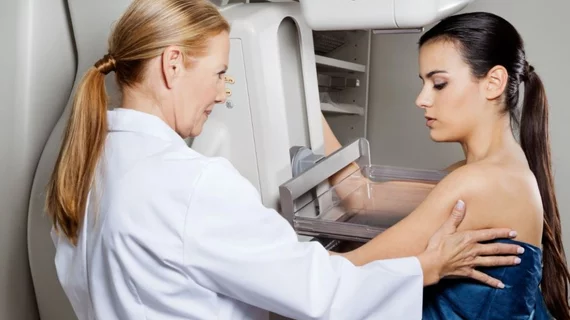ACR: Congress should include delay of ‘controversial’ USPSTF breast cancer screening in final funding bill
The American College of Radiology is urging Congress to pass a draft bill that includes a delay of U.S. Preventive Services Task Force breast cancer screening mammography recommendations.
A House subcommittee recently approved the fiscal year 2021 funding bill by a nine to six vote. It extends the current delay in instituting 2009 USPSTF screening guidelines through 2025. The “controversial” guidance pushes for biennial screening beginning at age 50; language in the current bill retains insurance coverage of annual mammograms for women 40 years and older.
“ACR supports the extension of the moratorium against the most recent USPSTF breast cancer screening recommendations,” Dana Smetherman, MD, chair of the ACR Breast Imaging Commission, said in a statement provided to Health Imaging. “The ACR, Society of Breast Imaging, American Cancer Society and even the USPSTF all agree that the most lives are saved when women begin screening at age 40 and are screened annually.”
Smetherman added that moving away from this approach allows insurers to strip women of coverage and may cause “thousands of unnecessary breast cancer deaths each year. “Congress should include the moratorium in the final funding bill,” she added.
The House Appropriations Subcommittee on Labor, Health and Human Services, Education, and Related Agencies legislation also boosts funding for the National Institutes of Health by $5.25 billion, including $2.9 billion for Alzheimer’s disease and related dementias research.
It will be sent to the full House Appropriates Committee for markup.
Read the American College of Radiology’s breakdown of the legislation here.

